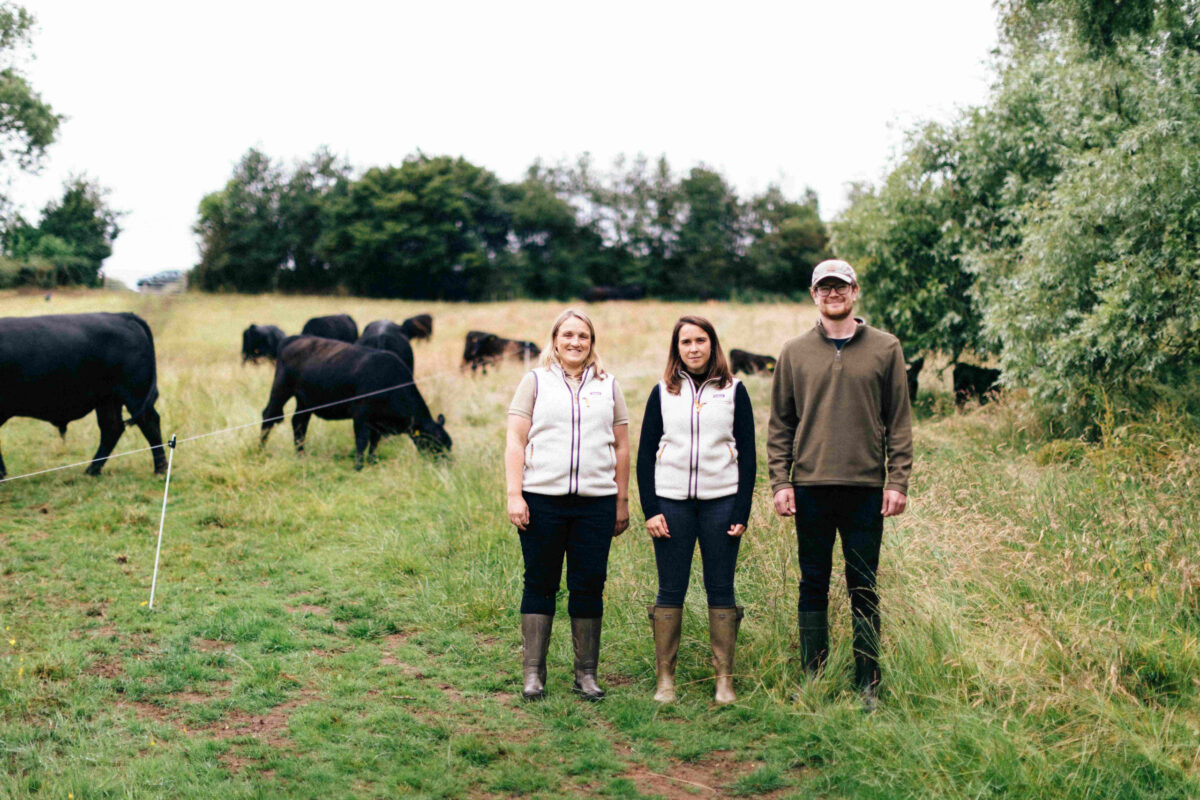Organic ideas are coming to life through a farming collective that provides land and know-how to hopeful businesses
From Scotland to Cornwall, an organic, regenerative collective of UK farmers is looking to pair up with sustainable businesses that need access to land and tools.
Pitch Up! was founded in 2021 by Tim May, of Kingsclere Estates farm in Hampshire. It offers land, resources and expertise to businesses with big ideas for sustainable projects – in other words, ‘no gear, all the ideas’.
The idea is to replicate nature’s ‘closed loop’ system, with waste being reused to create a thriving circular farming community.
“Our goal is to have a diverse mix of enterprises all operating off the land – using each other’s by-products or waste, and sharing knowledge, equipment and experience,” says May.
Six farms have signed up so far, offering up a total of 12,000 acres of land to hopeful enterprises.
“Nature thrives on diversity; it also fuels economic resilience, helps create a closed-loop system, and builds stronger rural communities,” May explains. “As farmers we have an abundance of land and natural resources – we want to share those resources and bring more people on to the land.”
Pitch Up! has already helped to launch a handful of businesses, including a foraged pet food brand, an insect farm, and a tallow maker. Below, some of the farms involved with the scheme share what they’ve learned so far:
Pop-ups and markets at Balcaskie Estate
Balcaskie Estate covers 2,000 hectares of land in Fife, Scotland, and has hosted markets, a butchery, and pop ups by Scotland The Bread, an organisation that works to get more people eating better bread.
Rosie Jack, Balcaskie’s business development manager, says: “We know that there’s a real demand for rural land so our message is: ‘We have land, come and use it!’ We really do welcome approaches from businesses of all shapes and sizes.”
Jack has seen businesses at Balcaskie thrive through collaboration. “What one business perceives as waste, another views as a crucial raw ingredient; one business’ fallow period is another’s peak time,” she says, adding that joint staffing helps all the teams involved.
Planton Farm’s food-based businesses
At Planton Farm, Shropshire, co-founder Clare Hill says she’s been inspired by Pitch Up! enterprises, and how their diversity makes sustainable use of the land. As a regenerative farmer, joining the scheme felt like the right thing to do, she says.
“I understand the challenges of running a food-based business without having access to land. More and more people are wanting to grow or get involved with nutrient-dense food, but the mechanisms of the food system in the UK can make that difficult,” Hill says.
“Pitch Up! really felt to us like an innovative solution to that problem, by providing land-based businesses with space to work and grow, in a way that benefits the whole system from the ground up.”
Upcycling and mobile services at Kingsclere Estates
As the original Pitch Up! location, Kingsclere Estates in Hampshire has offered land and materials to a host of businesses.
One such business is The Roaming Dairy, a mobile milking service that uses the 450 cows on the farm to produce organic milk while grazing the land on rotation.
Another successful business, The Roaming Smoker, created a mobile organic meat smoker upcycled from old agricultural machinery parts. Its founder, Chris Saunders, says: “The Pitch Up! scheme has really enabled my business to become financially viable, with better margins. Using old dairy cows from Kingsclere Estates, where we’re based, makes the business more resilient – as it’s using low value cuts of meat that would otherwise be turned into dog food, or wasted. For me, it’s invaluable to have more people to bounce ideas around with, and the type of farming that the Pitch Up! team does is really entrepreneurial.”
This year, the Pitch Up! farming collective is keen to hear from entrepreneurs who want to use pasture land, organic milk, oats and grain, animal hides, woad, wool and even hedgerows for foraging.
“We are looking for sustainable businesses at all stages of the business life cycle, but particularly those that have an idea of how they can fit into the circular systems in place at a Pitch Up! Farm,” says May. “It might be a cheese maker for example, who can add value by using the organic milk from the mobile dairy business here.”
Applications for the 2024 season begin on 1 November through Pitch Up!’s site, and close on 30 November
Main image: Planton Farm team. Credit: Ben Pryor
Be part of the solution
Positive News is helping more people than ever to get a balanced and uplifting view of the world. While doom and gloom dominates other news outlets, our solutions journalism exists to support your wellbeing and empower you to make a difference towards a better future.
But our reporting has a cost and, as an independent, not-for-profit media organisation, we rely on the financial backing of our readers. If you value what we do and can afford to, please get behind our team with a regular or one-off contribution.
Give once from just £1, or join 1,400+ others who contribute an average of £3 or more per month. You’ll be directly funding the production and sharing of our stories – helping our solutions journalism to benefit many more people.
Join our community today, and together, we’ll change the news for good.


